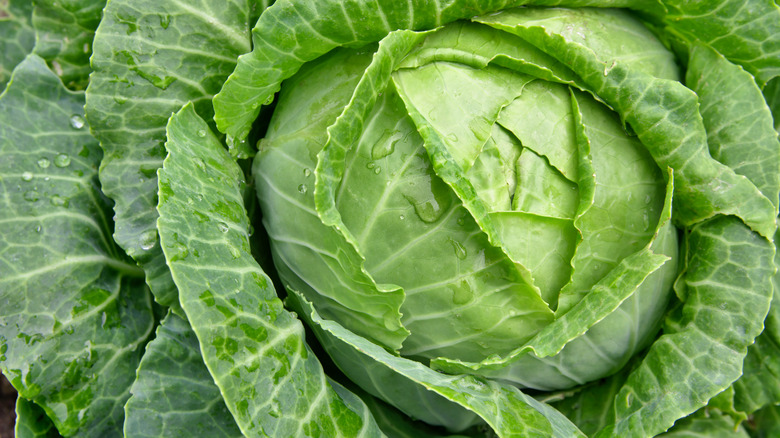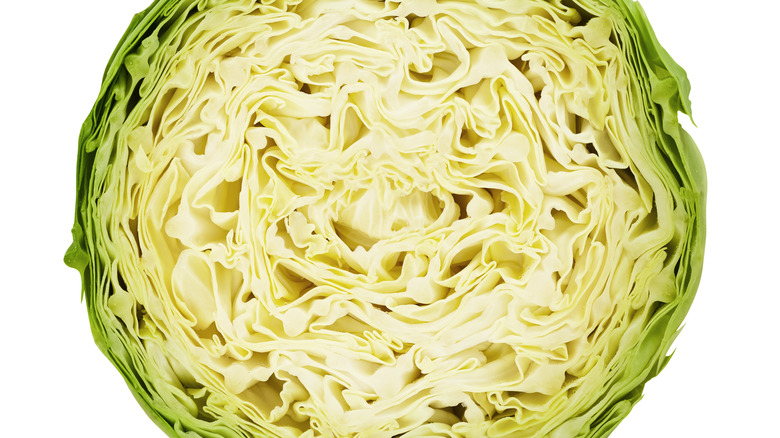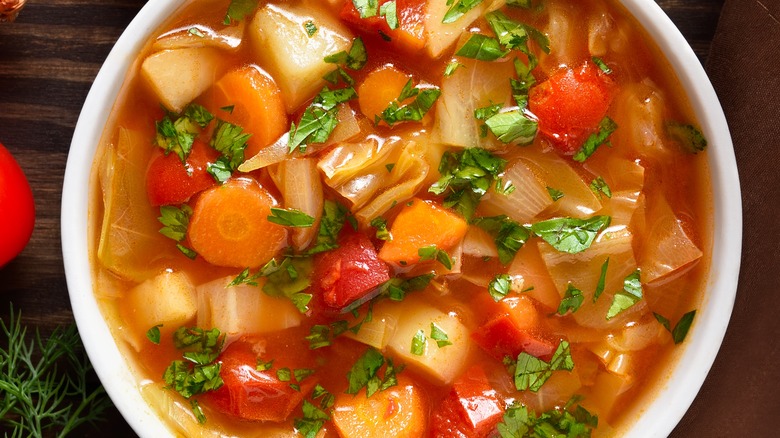The Absolute Best Way To Freeze Cabbage
Cabbage is delicious and can be used in a medley of different dishes, from cabbage soup to slaw to okonomiyaki. But a single head of cabbage can yield more food than expected, and if you're burnt out on cabbage dishes or simply don't have the time to cook it all at once, you may have excess that needs storing. Luckily, cabbage freezes very well and can keep for months if properly prepared and stored.
Freezing cabbage is a fairly simple process, though it does require a bit of cutting and cooking. It involves first rinsing and slicing the cabbage (quartering it works well), then blanching it — or quickly cooking it in boiling water. To stop it from overcooking, dip the cabbage in an ice bath, then allow it to cool off and dry completely. The dried cabbage can then be placed into freezer storage bags. Cabbage will keep for about nine months before it starts to lose quality.
Why is blanching essential for frozen cabbage?
Some people freeze their cabbage raw to avoid having to go through the step of blanching and cooling the cabbage, saving time in the process. But blanching vegetables before freezing them is important, as it does a number of things, including killing off any bacteria that may be present on the exterior of the cabbage before freezing, and preserving the nutrients in the cabbage during its time in the freezer. Blanching also keeps the cabbage looking, feeling, and smelling fresh once it's removed from the freezer. The cabbage only needs to be boiled for 60 to 90 seconds; longer than this and it may start to get too soft.
If you still want to freeze your cabbage raw, you can do so, though it's best to do this only if you plan on eating the cabbage fairly soon. Raw cabbage won't keep as well in the freezer, so try to use it within a month or two. Be sure to thoroughly rinse the raw cabbage before freezing, as the boiling water won't have a chance to remove dirt and bacteria from the exterior of the cabbage.
Using frozen cabbage
When it's time to use your frozen cabbage, you can either thaw it in the fridge overnight, or use the cabbage directly from the freezer depending on the application. If you're planning to cook the vegetable in a skillet or drop it into a simmering broth, you can skip the defrosting. Do note, though, that cabbage that's been frozen may take a little longer to come up to temperature and may give off a little extra water during the cooking process.
Also note that frozen cabbage is best used in cooked cabbage dishes such as stir-fry, cabbage soup, or stew. Freezing can affect the texture of raw cabbage and soften it, so using it in dishes like a raw shredded cabbage slaw can yield variable results. You might not get that crisp, crunchy mouthfeel that a fresh cabbage provides.
Despite this, freezing cabbage is a great way to preserve this veggie for later use and doing so can prevent food waste and preserve nutrients for months after the growing season is over.


